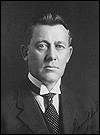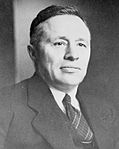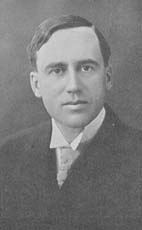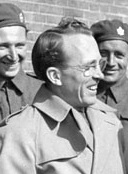| |||||||||||||||||||||||||||||||||||||||||||||
63 seats in the Legislative Assembly of Saskatchewan 32 seats needed for a majority | |||||||||||||||||||||||||||||||||||||||||||||
|---|---|---|---|---|---|---|---|---|---|---|---|---|---|---|---|---|---|---|---|---|---|---|---|---|---|---|---|---|---|---|---|---|---|---|---|---|---|---|---|---|---|---|---|---|---|
| |||||||||||||||||||||||||||||||||||||||||||||
| |||||||||||||||||||||||||||||||||||||||||||||
The Saskatchewan general election of 1929 was the seventh provincial election held in the Canadian province of Saskatchewan. It was held on June 6, 1929 to elect members of the Legislative Assembly of Saskatchewan.

The provinces and territories of Canada are the sub-national governments within the geographical areas of Canada under the authority of the Canadian Constitution. In the 1867 Canadian Confederation, three provinces of British North America—New Brunswick, Nova Scotia, and the Province of Canada —were united to form a federated colony, becoming a sovereign nation in the next century. Over its history, Canada's international borders have changed several times, and the country has grown from the original four provinces to the current ten provinces and three territories. Together, the provinces and territories make up the world's second-largest country by area.

Saskatchewan is a prairie and boreal province in western Canada, the only province without natural borders. It has an area of 651,900 square kilometres (251,700 sq mi), nearly 10 percent of which is fresh water, composed mostly of rivers, reservoirs, and the province's 100,000 lakes.

The Legislative Assembly of Saskatchewan is one of two components of the Legislature of Saskatchewan, the other being the Queen of Canada in Right of Saskatchewan,. The legislature has been unicameral since its establishment; there has never been a provincial upper house.
Contents
As a result of corruption scandals, the Liberal Party of Premier James Gardiner lost a significant share of its popular vote, but more important, lost twenty-two of the seats it had won in the 1925 election. While the Liberals held the largest number of seats in the legislature, they had only a minority. Gardiner tried to continue as a minority government, but was quickly defeated in a Motion of No Confidence, and resigned as premier.

James Garfield "Jimmy" Gardiner, was a Canadian farmer, educator, and politician. He served as the fourth Premier of Saskatchewan, and as a minister in the Canadian Cabinet.
A minority government, or minority cabinet or minority parliament, is a cabinet formed in a parliamentary system when a political party or coalition of parties does not have a majority of overall seats in the parliament. It is sworn into office, with or without the formal support of other parties, to enable a government to be formed. Under such a government, legislation can only be passed with the support of enough other members of the legislature to provide a majority, encouraging multi-partisanship. In bicameral parliaments, the term relates to the situation in chamber whose confidence is considered most crucial to the continuance in office of the government.
The Conservative Party of James T.M. Anderson increased its representation in the legislature from three to twenty four seats. Following Gardiner's resignation, Anderson was able to form a coalition government with the support of the Progressive Party and some independents.

The Progressive Conservative Party of Saskatchewan is a right-of-centre political party in the Canadian province of Saskatchewan. Prior to 1942, it was known as the Conservative Party of Saskatchewan. Members are commonly known as Tories.

James Thomas Milton Anderson was the fifth Premier of Saskatchewan and the first Conservative to hold the office.
A coalition government is a cabinet of a parliamentary government in which multiple political parties cooperate, reducing the dominance of any one party within that "coalition". The usual reason for this arrangement is that no party on its own can achieve a majority in the parliament. A coalition government might also be created in a time of nationals difficulty or crisis to give a government the high degree of perceived political legitimacy or collective identity it desires while also playing a role in diminishing internal political strife. In such times, parties have formed all-party coalitions. If a coalition collapses, a confidence vote is held or a motion of no confidence is taken.
The Progressives had lost a large part of the popular vote it had won in 1925, but managed to retain five of the six seats it had won previously.










